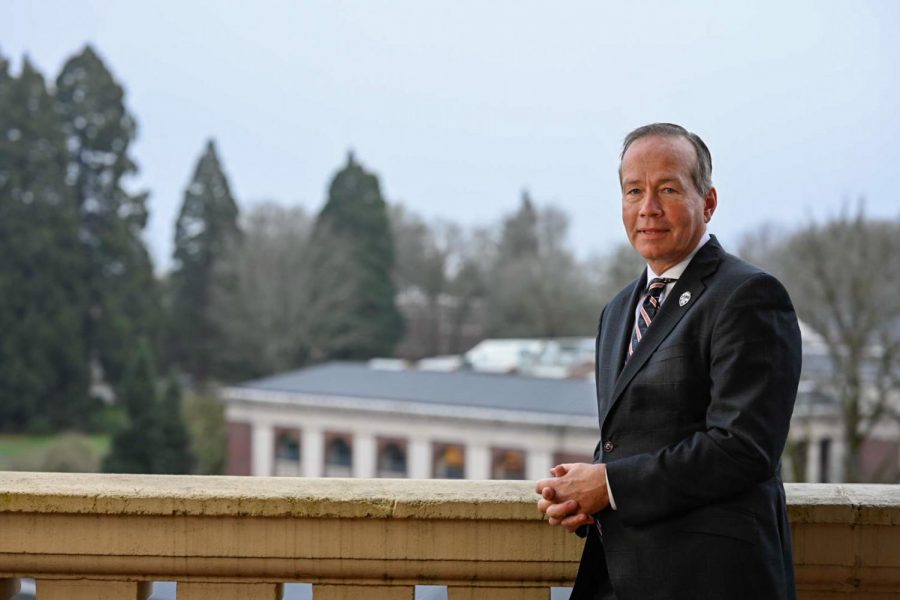Current Louisiana State University president to become new Oregon State University president
December 13, 2019
Correction: This article had previously gotten F. King Alexander’s start date incorrect. This issue has been resolved.
After eight months of evaluating possible candidates to succeed Oregon State University President Ed Ray, this morning the Board of Trustees unanimously voted to appoint current Louisiana State University President F. King Alexander to step in for Ray on Jul. 1, 2020.
Alexander has been president at LSU since 2013, and has acted as president at Murray State University in Kentucky and University of California Long Beach prior to LSU. He also has a Ph.D in higher education administration from the University of Wisconsin-Madison.
“Dr. Alexander is a nationally recognized public higher education thought leader,” said Steve Clark, OSU’s Vice President via email. “Dr. Alexander will collaborate with students, faculty, staff, OSU stakeholders and others to advance student success, inclusive excellence, faculty excellence, research innovation and the service impact that OSU provides our state, the nation and the world.”
Alexander’s contract with OSU puts his salary at $705,000 annually, approximately $95,000 more than his current salary at LSU.
In March, Ray announced he would be stepping down as president, as his five year contract will be up in 2020. In a statement sent out to all students and faculty, Ray said he is leaving OSU with a new strategic plan, titled SP4.0, and a 10-year business plan to help university fiscal decisions.
“Personally my health is very good,” said Ray in his official statement. “Yet, I will be almost 76 years old when I step down as president, and I view my job as including my best effort to assist this wonderful university in transitioning to new leadership.”
Ray will be continuing his time at OSU as a professor of economics for the College of Liberal Arts.
The Board of Trustees was given the task of finding the next president-elect and did so by assessing candidates at each monthly meeting alongside a 15-person committee and a 25-person stakeholder group, according to the board’s secretary, Debbie Colbert. In November, the board synthesized the applicant pool down to four final candidates.
“The four candidates that participated in second round interviews with the stakeholder group and with trustees were all highly accomplished and talented individuals,” said Colbert in an email statement.
A significant amount of the criteria also lay in whether or not the candidates have qualifications and attributes listed in OSU’s presidential profile. The qualifications require the new candidate to have experience running a multi-complex institution, operating a budget over $1.3 billion, along with an understanding of a mission-focused university.
The Presidential Search Committee played a large role in the search when determining whether or not the candidates also followed the attributes listed in the profile. The committee is made up of students, faculty, alumni, along with other members of the broader community, and is headed by a member of the OSU board of trustees.
The committee did not respond to a request for comment in time of publication.
“The future of Oregon State University has been and continues to be very bright,” said Clark. “[Alexander] has advanced inclusive excellence at these universities in meaningful ways, and will do so at Oregon State. Meanwhile, he will work as a partner, involving students, faculty and staff, to lead OSU forward.”























































































































